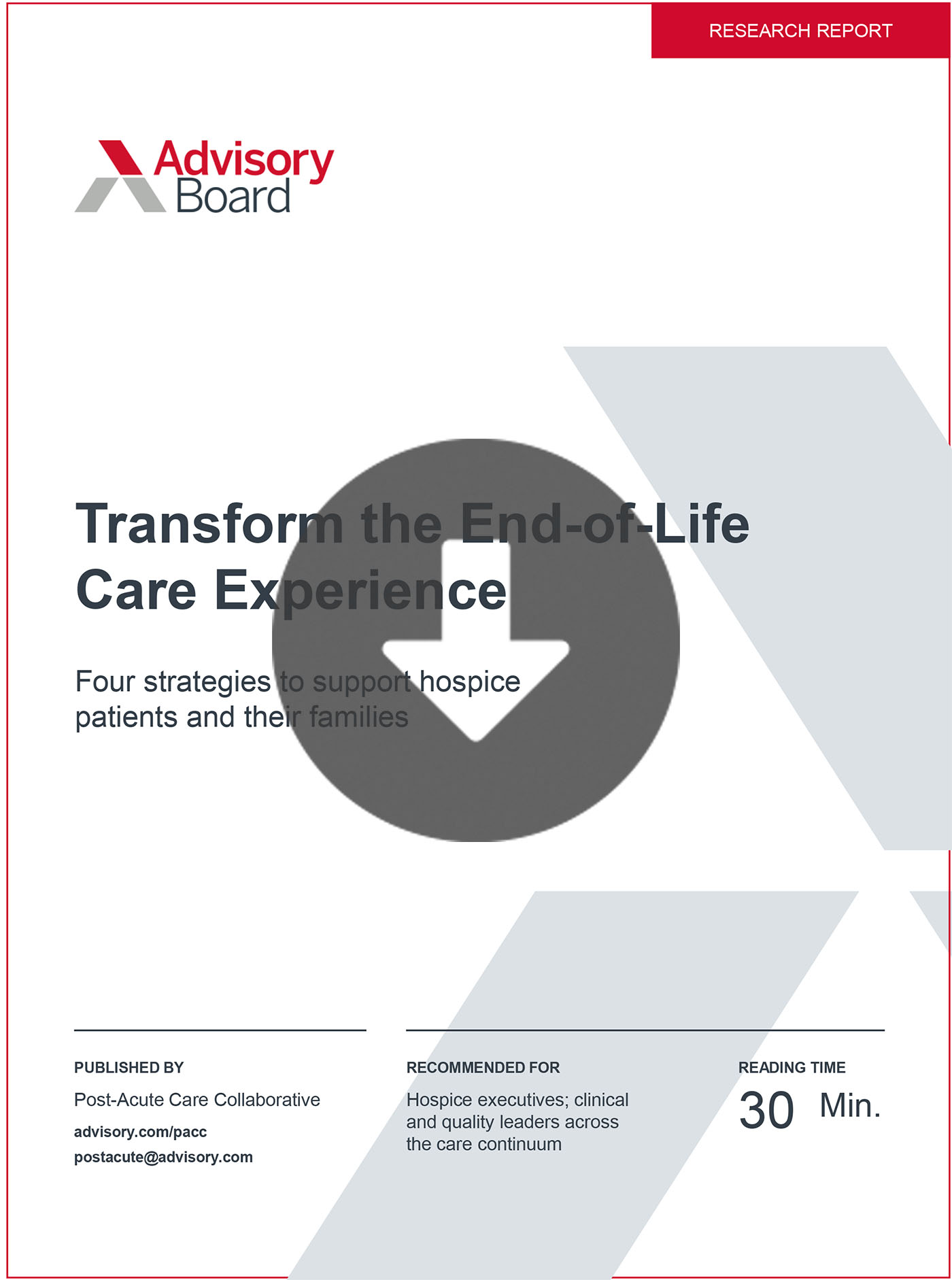Auto logout in seconds.
Continue LogoutEditor's note: This popular story from the Daily Briefing's archives was republished on July 18, 2019.
Naomi Rosenberg, an ED physician at Temple University Hospital, writes in the New York Times about how providers should best handle letting a patient's parents know their child has died at the hospital.
Download URMC's conversation prompts to start improving end-of-life care for patients
The very first step, Rosenberg says, is to "get your coat." Change out of your scrubs if they're bloodstained, clean yourself up, and find a quiet place to practice what you're about to say.
Watch yourself in the mirror as you practice out loud, and take care to use the person's name. Don't tell a grieving parent, "Your son died," Rosenberg writes—say, "Ernest died today."
Practice until you can say it loudly, clearly, and without faltering. "If it takes you fewer than five tries, you are rushing it and you will not do it right," Rosenberg says.
After taking the time to practice, Rosenberg urges that "you do nothing before you go to her." Providers shouldn't make a phone call, talk to a medical student, or check in on other patients: "You never make her wait. She is his mother."
Telling the family
Wherever the family may be waiting, providers need to do their best to be supportive from the moment they walk in. Introduce yourself and shake everyone's hand, Rosenberg says, and make sure you are sitting with them when delivering the news. "You never stand," she writes. "If there are no seats left, the couches have arms on them."
After delivering the news, "you wait," Rosenberg says. You don't answer unasked questions, you don't stand up to leave. You simply wait. "You are here for her," she writes.
Sometimes, family members react angrily, yelling or lashing out physically. "Do not be worried," Rosenberg writes. Security officers will enter when they hear the noise, and "they will be kind," she says. The officers know you're breaking the news.
Regardless of how the family reacts, "You are here for the mother and you have more to do," Rosenberg writes.
Rosenberg cautions that providers need to choose their words carefully. When answering questions, don't lie—but don't be too upfront. "Do not say he was murdered or he was killed," she writes, even though he died from a gunshot wound. Instead, just "say that he died." And be careful when answering emotional questions, such as whether he was in pain and suffered. "If he did, you do not lie," Rosenberg says. Note that "his pain is over now," she writes, but don't "ever say he was lucky that he did not feel pain. He was not lucky."
But one of the worst parts happens before you leave, when you have to "break her heart one more time," Rosenberg says. When someone dies from a gun-related wound, the police have to examine the body—and she can't see her son until after they've completed their work.
"You do not ever say 'the body,'" she concludes. "It is not a body. It is her son" (Rosenberg, New York Times, 9/3).
Next, get URMC's end-of-life conversation prompts
When it comes to end-of-life care, most organizations struggle to meet patients' needs. In a recent poll, 87% of Americans age 65 and older said that they believe their doctor should discuss end-of-life issues with their patients; however, only 27% of those polled had actually discussed these issues with their doctor.
Download URMC's conversation prompts to start improving end-of-life care for patients.
Don't miss out on the latest Advisory Board insights
Create your free account to access 1 resource, including the latest research and webinars.
Want access without creating an account?
You have 1 free members-only resource remaining this month.
1 free members-only resources remaining
1 free members-only resources remaining
You've reached your limit of free insights
Become a member to access all of Advisory Board's resources, events, and experts
Never miss out on the latest innovative health care content tailored to you.
Benefits include:
You've reached your limit of free insights
Become a member to access all of Advisory Board's resources, events, and experts
Never miss out on the latest innovative health care content tailored to you.
Benefits include:
This content is available through your Curated Research partnership with Advisory Board. Click on ‘view this resource’ to read the full piece
Email ask@advisory.com to learn more
Click on ‘Become a Member’ to learn about the benefits of a Full-Access partnership with Advisory Board
Never miss out on the latest innovative health care content tailored to you.
Benefits Include:
This is for members only. Learn more.
Click on ‘Become a Member’ to learn about the benefits of a Full-Access partnership with Advisory Board
Never miss out on the latest innovative health care content tailored to you.

